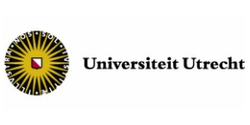PhD Position on Abiotic Stress-Mediated Flowering
Updated: 26 Mar 2025
Plants go through various developmental phases, including flowering and fruit and seed production. Environmental factors influence these transitions. In this CropXR project, you will study how plants sense and respond to environmental stresses to adjust reproductive growth. Focusing on molecular networks regulating floral transition, you’ll identify key hubs controlling reproductive processes under temperature and drought stress. Findings will guide strategies to help plants thrive in changing climatic conditions.
Your job
This PhD position is part of the CropXR research programme. CropXR is focused on developing innovative breeding methods to enhance crop resilience, sustainability, and climate adaptation. With a budget of 96 million euros over the next decade, CropXR aims to create eXtra Resilient (XR), sustainable, and climate-adapted crops. This collaborative initiative involves four Dutch universities and numerous companies, encompassing scientific research, data collection and sharing, education, and practical applications in agriculture and plant breeding.
The project comprises two main parts:
- Using Arabidopsis thaliana as a model system, you will execute a large-scale and detailed phenotyping investigation on the effects of mild heat and drought on the plant’s reproduction processes using the facilities of the Netherlands Plant Ecophenotyping Centre (NPEC). Next, validation of genetic leads will be performed, among others, using CRISPR-Cas9 gene editing and alteration of gene expression.
- Concurrently, you will build on findings from previous research in the group on the molecular mechanisms of temperature-regulated timing of flowering through natural variation studies. Work in this part of the project will include mapping-by-sequencing, time-series RNA-sequencing, histone modification assays, and CRISPR-Cas9 gene editing.
As a PhD candidate, you will be responsible for designing and conducting experiments behind the computer and in the laboratory. You will interact with other CropXR PhD candidates and researchers involved in experimental research, bioinformatics and/or modelling with four Dutch universities participating in the programme, as well as with experts from breeding companies within CropXR. You will also be involved in supervising students and, occasionally, sharing your expertise in the classroom with Bachelor's students. This part of the job will help you learn about teaching and open additional perspectives for the next career steps.
A supervision team of 2-3 people will support your professional development as a researcher. Our research group and the CropXR consortium provide all the needed expertise. You will have opportunities to discuss your professional development and future career steps with a mentor from an industry or other area of your choice.
Requirements:
You are a collaborative, enthusiastic, and curious colleague with a strong interest in molecular plant biology, who:
- has completed or is nearing completion of an MSc degree in molecular (plant) biology;
- possesses proven skills in molecular biology research;
- has an interest in multidisciplinary research, bioinformatics and connecting to computational scientists;
- is eager to learn, apply, or even develop new methods for molecular biology research;
- has strong organisational skills for effective and enjoyable collaboration within the team and consortium.
- has strong oral and written communication skills and working proficiency in English.
Salary Benefits:
- A position for four years;
- a gross monthly salary between €2,901 and €3,707 (salary scale P under the Collective Labour Agreement for Dutch Universities (CAO NU));
- 8% holiday pay and 8.3% year-end bonus;
- a pension scheme, partially paid parental leave and flexible terms of employment based on the CAO NU.
In addition to the terms of employment laid down in the CAO NU, Utrecht University has a number of schemes and facilities of its own for employees. This includes schemes facilitating professional development, leave schemes and schemes for sports and cultural activities, as well as discounts on software and other IT products. We also offer access to additional employee benefits through our Terms of Employment Options Model. In this way, we encourage our employees to continue to invest in their growth. For more information, please visit Working at Utrecht University.
36 - 40 hours per week
Padualaan 8

